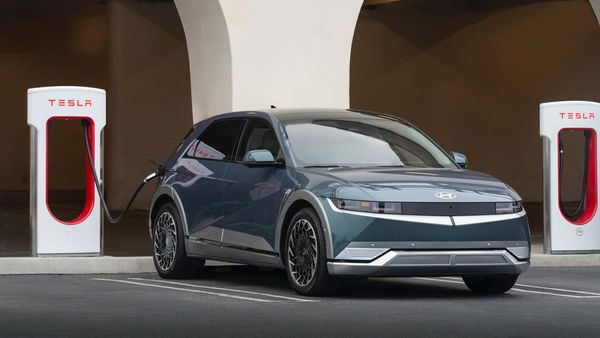
Hollywood has long mined global warming to create terrifying scenarios of apocalyptic futures. Some of these aren't very realistic. Others are all preaching and no teaching. But the new Apple TV series Extrapolations takes a different, more science-steeped approach -- the episodes cascade through the future of this century, using real scientific projections and computer-generated special effects to show how global warming might play out under the most likely scenario.
It's a projection based on humanity continuing to chip away at the emissions problem -- not ignoring it but not making any great leaps of progress either.
Each episode takes on a year between 2037 and 2070 -- a future many of us will inhabit. People go on with life, but with a backdrop of new landscapes and weather patterns that look increasingly different from our current world. The show was created by Scott Burns, who is known for the 2011 pandemic drama Contagion and for work on Al Gore's 2006 global warming documentary An Inconvenient Truth.
Recently, at a panel discussion held as part of Yale University's Environmental Film Festival, one of the show's writers and producers, Dorothy Fortenberry, said they wanted to avoid the post-apocalyptic plot with heroes struggling for survival. They went for the middle of our current range of scientific predictions -- a planet that is warmer by 2.5ºC or 3ºC and the weather and sea level changes that likely come with that.
"It's what will happen if we keep muddling through… the way we're muddling through now," said Fortenberry.
We've already warmed the planet by more than 1ºC, and climate scientists tend to agree that anything over 1.5 will cause major disruptions. There's consensus that to be safe we should try to keep global warming under that mark, though 2ºC is a more realistic goal, and even that will require major changes in the way we consume energy.
The show's scientific accuracy looks good to climate scientist Michael Mann of the University of Pennsylvania, who has studied how global warming will manifest itself in extreme weather. Mann says he thinks the climate we've created is plenty dramatic already, with Australia burning, California burning and then flooding, and record heat waves killing unsuspecting people in normally cool places such as Seattle and London. (Mann was cited by Leo DiCaprio as an inspiration for his character in the 2021 satire Don't Look Up, in which scientists try to warn the public about a killer comet, an allegory for global warming.)
Extrapolations depicts bigger floods, stronger hurricanes and more fires -- with more smoke pollution. Cities have built seawalls to keep back the tides. There's a global geoengineering scheme, pulled off by a rogue scientist, and it has its own unintended consequences.
Mann says that more warming is likely to intensify these kinds of extreme events. How much the sea rises is harder to predict, but given that many coastal areas are already having trouble with flooding, it's plausible there will be more in 2046.
Despite the scientific accuracy, many critics panned the series, calling it patronising and predictable, as well as sappy and sermonising. One suggested that it would have been better if the producers had got rid of the actors entirely. And yes, it was often hard to care about the human characters -- even though the plight of a doomed whale was genuinely heartbreaking.
One of the panellists at the Yale event, Anna Jane Joyner, of the climate consulting nonprofit Good Energy, says Hollywood often tries to get people to eat broccoli by promising chocolate. She suggested that the entertainment industry is wrong to equate global warming with broccoli.
She's certainly right in the case of Extrapolations. The part of the series that's educational and science-based is fun to watch, even addictive. It's the chocolate. The peripheral dramatic storylines about the characters' relationships, however, are far less appetising.
Audience reviewers had mixed reactions, but many said the scientific ideas transcended the dramatic flaws. There could have been a lot more science -- more scientists shown explaining things, maybe even more charts and graphs showing what was happening to the world and why.
Movies and TV that appeal to the intellect can work. And it's especially important for scientists to appeal to people's reason, not their emotions. During Covid, one reason the public health message in the US did such a terrible job saving lives was it relied on emotional manipulation -- fear and guilt. People didn't get enough science -- about how the virus works, how it's transmitted, how scientists are investigating its origin, and dozens of other questions about which there was tremendous curiosity.
We have a chance to learn from some of those mistakes with global warming. When it comes to our climate, we still have the power over the outcome, Mann reminds me: "It still depends on us."
Maybe if Hollywood makes movies with less preaching and more teaching, there's still time to avoid making things too much worse. Bloomberg
Faye Flam is a Bloomberg Opinion columnist covering science. She is host of the Follow The Science podcast.







